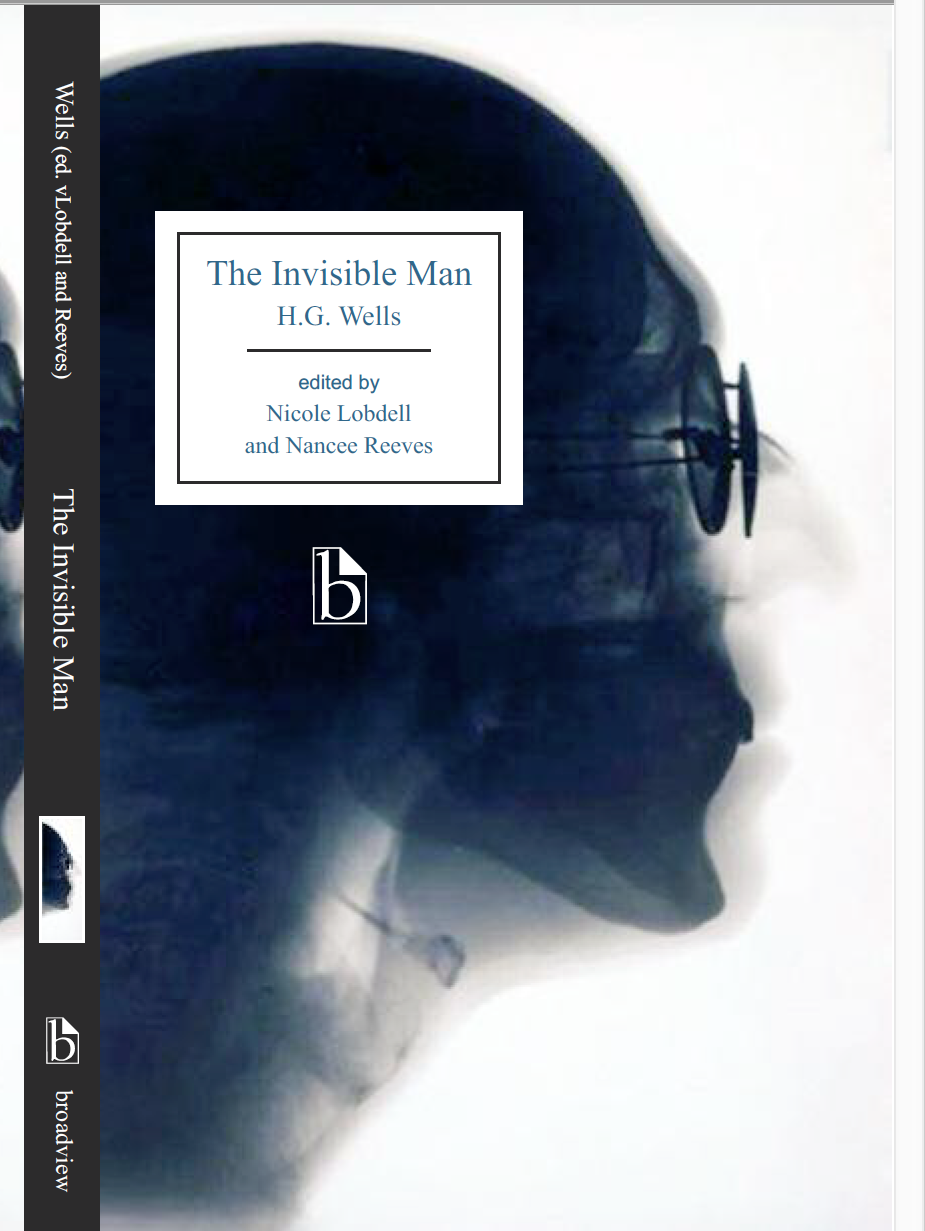Now available from Broadview Press, a new critical edition of H.G. Wells's The Invisible Man edited by Nicole Lobdell (DePauw University) and Nancee Reeves (University of Georgia). An unsettling novel, The Invisible Man reveals the prejudices, politics, and aspirations of the late nineteenth century. It hones our understanding of Wells's later works, both his rollicking scientific romances and the eugenic 'utopias' that Wells wrote in his later years. This new edition brings to the forefront the cultural contexts and scientific discoveries that inspired Wells's novel. Appendices include, among others, "The Four Endings of The Invisible Man," "Invisibility in Nineteenth-Century Fiction," "Biological Context," and "Technology Context: Röntgen Rays and Radio Waves."
Click here to order your copy from Broadview Press!
“This is a wonderful edition, setting Wells’s text in a number of rich contexts, especially the history of invisibility literature.” — Simon James, Durham University
“A marvelously comprehensive edition of an H.G. Wells classic. Editors Nicole Lobdell and Nancee Reeves meticulously reconstruct The Invisible Man from early printed sources, providing readers with both a seamless narrative experience and a fascinating glimpse into Wells’s creative process. The carefully curated appendices provide rich literary and scientific context for this complex and sometimes troubling scientific romance, and the concluding filmography demonstrates The Invisible Man’s enduring appeal to the popular imagination. Highly recommended for scholars, artists, and students alike.” — Lisa Yaszek, Georgia Institute of Technology
“From the striking X-ray ‘Self Portrait’ on the front cover to the eloquent blurbs on the back, the university classroom now has a portable, modestly priced edition of The Invisible Man worthy of Wells’s remarkable ‘grotesque romance.’” — Nicholas Ruddick, Science Fiction Studies
